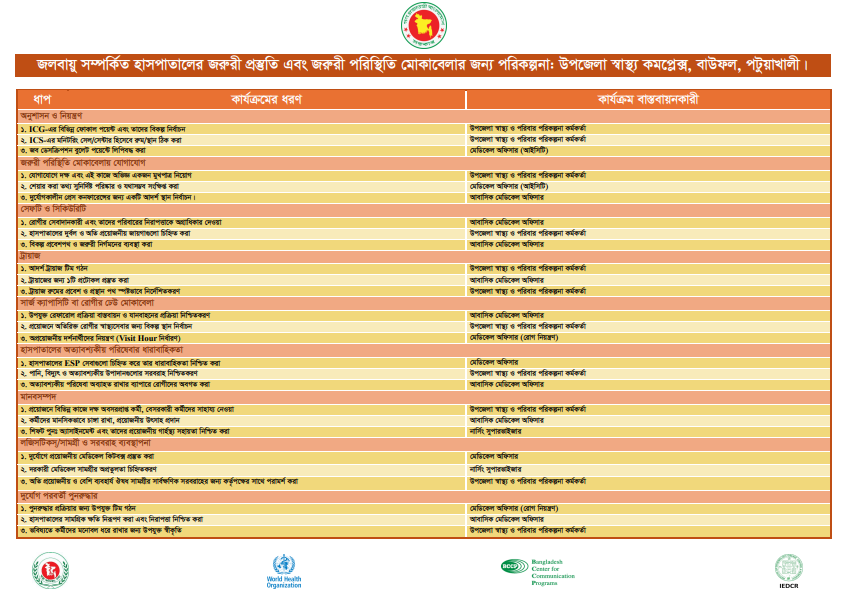Strengthening the Frontlines: Climate Emergency Readiness in Bangladeshi Hospitals
Climate change is the single biggest health threat facing humanity. Climate impacts are already harming health, through air pollution, disease, extreme weather events, pressures on mental health, and increased hunger and poor nutrition in places where people cannot grow or find sufficient food. In light of Bangladesh's current climate change-related extreme weather, which has wreaked havoc on the health and health-care systems in a variety of ways, particularly in climate-stressed areas, hospitals have emerged as the first point of contact for stressed individuals.Based on the "Climate informed Hospital Emergency Preparedness
 and Response Plan" updated by IEDCR, DGHS with the technical assistance from WHO a training manual was developed for the health managers, professional and allied staff of the primary, secondary and tertiary level hospitals. Subsequently with the support from WHO near about 500 health mangers and allied staff were trained by BCCP in 11 climate stress areas of Bangladesh with the aims to provide technical guidelines and procedures to health managers and allied staff for managing health emergencies.
and Response Plan" updated by IEDCR, DGHS with the technical assistance from WHO a training manual was developed for the health managers, professional and allied staff of the primary, secondary and tertiary level hospitals. Subsequently with the support from WHO near about 500 health mangers and allied staff were trained by BCCP in 11 climate stress areas of Bangladesh with the aims to provide technical guidelines and procedures to health managers and allied staff for managing health emergencies.
The Climate informed Hospital Emergency Preparedness and Response Plan was prepared considering the tool suggested by the WHO on pandemic management. It was structured according to nine key components each with a list of priority actions. Following a health care facility wise group work a facility level action plan on Climate Informed Hospital Emergency Preparedness which was developed by the entire 155 health care facilities comprised of Upazila Health Complex and the District Hospitals. After it is produced and make it displayed as printed version in certain places of the office. BCCP is regularly monitoring the production, procurement and display of the printed version of the action plan. WHO funding and IEDCR’s technical and administrative support in implementation of capacity building of the health managers to receive the training on Climate informed Hospital Emergency Preparedness and Response Plan will profusely contributing towards hospital level preparedness during emergencies and thus will work as mitigating the health hazards caused by the climate change.

